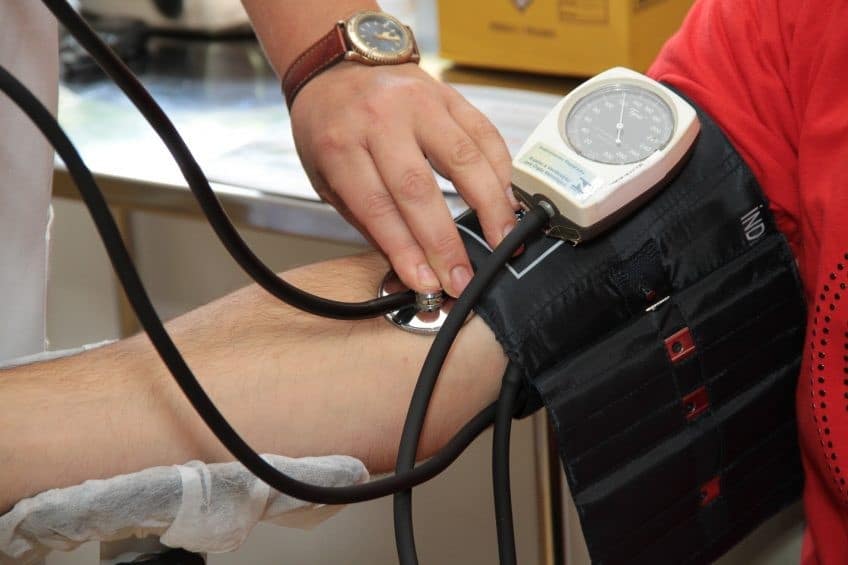Physical Restraint of Patient at Residential Treatment Facility is Not Medical Malpractice
Medical MalpracticeIn the case of The National Deaf Academy, LLC v. Townes, Case Number SC16-1587 (April 26, 2018), the Florida Supreme Court held that a physical hold or restraint placed on a patient residing at the facility by an employee was not considered medical treatment, and therefore, could not be considered medical malpractice upon causing an injury.
Facts of the Case
Cinnette Perry was a residential patient at The National Deaf Academy, which provided psychiatric, psychological, medical, speech therapy, and educational services to deaf, hard of hearing, and autistic patients. In 2008, Ms. Perry was alleged to have left the facility only to voluntarily return throwing rocks at the staff and buildings, breaking several windows, and pulling on cables and wires in an attempt to damage them.
Staff members claim that they attempted to verbally de-esclate the situation but were unsuccessful so the head nurse in charge made the decision to perform a tactical hold on Perry to physically restrain her. Perry sustained an injury to her leg (initially thought to be a dislocated knee) during the hold and later underwent an above-the-knee amputation of her left leg.
Needless to say, while it is tragic that Ms. Perry’s leg had to be amputated, she was a difficult patient to control at the time of her injury.
Before admission to the facility, Perry had been diagnosed with bipolar disorder, intermittent explosive disorder, impulse control disorder, conduct disorder, and post-traumatic stress disorder.
Legal Arguments
Townes (on behalf of Ms. Perry) brought a lawsuit and argued that the actions of the facility sounded in “ordinary negligence.” Interestingly, the facility defended the action by claiming that the physical restraint of a mentally derranged patient was a medical malpractice claim (and hence a 2-year statute of limitation with onerous pre-suit requirements was required).
To support their argument, the facility cited the case of Shands Teaching Hospital & Clinics, Inc. v. Estate of Lawson, 175 So. 3d 327 (Fla. 1st DCA 2015)(holding that a claim arising out of a psychiatric hospital employee leaving her keys and badge unattended, which resulted in a patient’s death was found to be a medical malpractice claim).
New Legal Conclusion
Skipping the back and forth of the legal process, the Florida Supreme Court disapproved of the First DCA’s opinion in Shands (above) and held that “an act from which the claim arises must be directly related to medical care or services, which require the use of professional judgment or skill.”
Therefore, the physical restraint of Ms. Perry was not a medical malpractice case but instead was possibly a claim of “ordinary negligence.”
It is important to note that it is hard to imagine how one can “negligently” restrain a mentally derranged patient. Instead, I think the claim (if there is one at all) is really either a battery (unjustified touching because of excessive force) or false imprisonment (unjustified use of restraint instead of calling law enforcement).
As crazy as it may sound too, there is a possibility that the facility employees had a reasonable fear that they may be physically harmed and therefore would have a “self-defense” or “justifiable use of force argument” to restrain Ms. Perry, but that is just my opinion.
Regardless, even though physical restraint of an unruly patient was part of the protocol and procedure at such a facility, according to the Court, there is no professional skill or judgment involved in the decision to restrain someone and, therefore, no malpractice claim.
Plaintiff May Have Won The Battle But Not The War
The expression that you won the battle but lost the war is a profound statement when it comes to litigation. Even though the plaintiff could still carry on with an “ordinary negligence” claim, all is not well for the plaintiff.
Aside from having to prove that the restraint of a mentally derranged patient was “negligent,” the plaintiff has to collect even if they win that argument. While not specific to this case, The National Deaf Academy closed its doors. It remains to be seen whether there is anything to collect, even in the event that the plaintiff can prove that the restraint was unreasonable.
Make The Smart Move By Hiring An Attorney To Help You
You want to be successful on your legal claim. To be successful, you should talk with a Lakeland, FL medical malpractice attorney to discuss the likelihood that your claim is going to be successful for free. If we believe that your medical malpractice case has merit, we will help you on a contingency fee basis-this means no attorney fees or costs unless we recover money for you. Call us today for your free case review.


